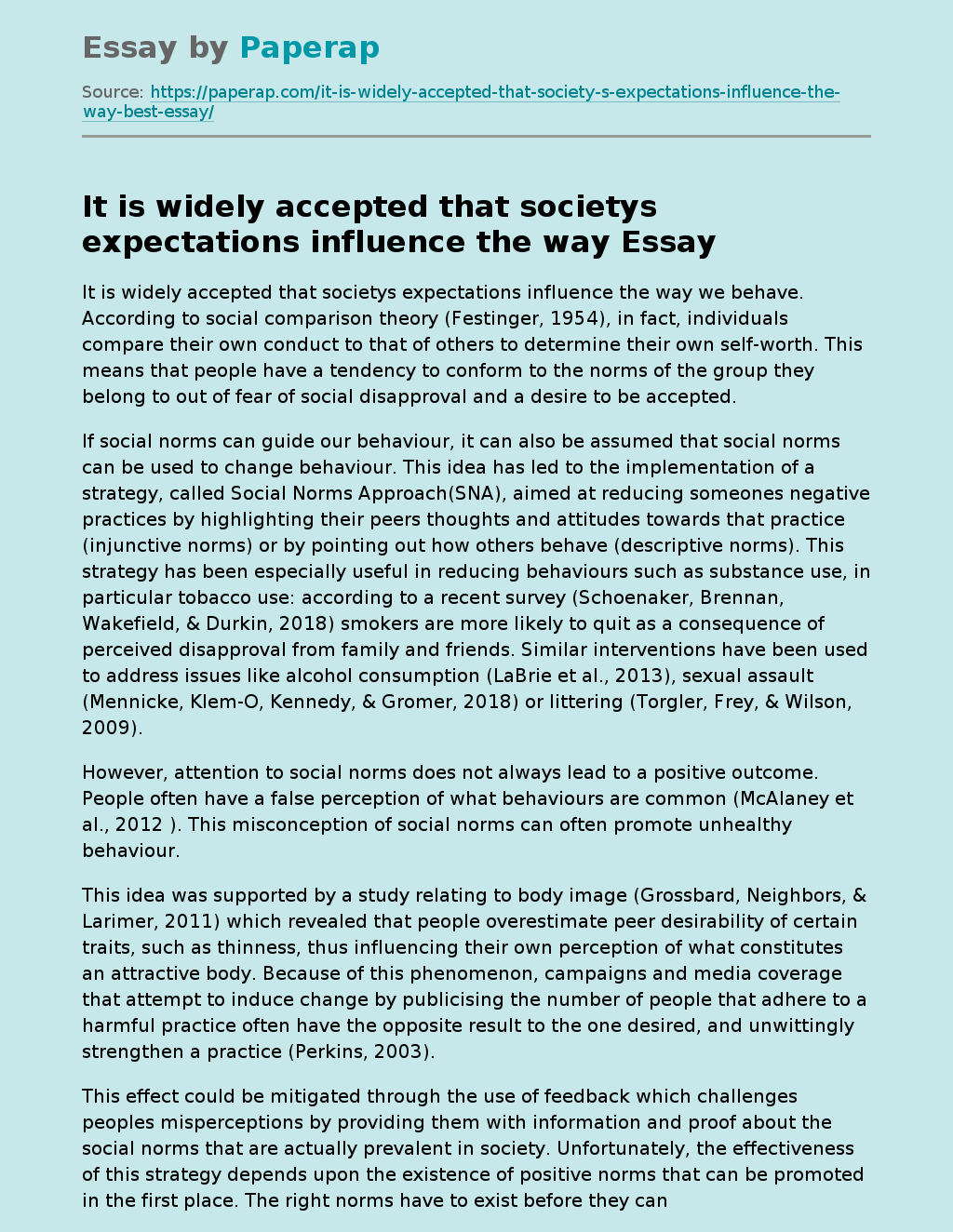It is Widely Accepted that Societys Expectations influence the Way
It is widely accepted that societys expectations influence the way we behave. According to social comparison theory (Festinger, 1954), in fact, individuals compare their own conduct to that of others to determine their own self-worth. This means that people have a tendency to conform to the norms of the group they belong to out of fear of social disapproval and a desire to be accepted. If social norms can guide our behaviour, it can also be assumed that social norms can be used to change behaviour.
This idea has led to the implementation of a strategy, called Social Norms Approach(SNA), aimed at reducing someones negative practices by highlighting their peers thoughts and attitudes towards that practice (injunctive norms) or by pointing out how others behave (descriptive norms).
This strategy has been especially useful in reducing behaviours such as substance use, in particular tobacco use: according to a recent survey smokers are more likely to quit as a consequence of perceived disapproval from family and friends.
Similar interventions have been used to address issues like alcohol consumption, sexual assault or littering. However, attention to social norms does not always lead to a positive outcome. People often have a false perception of what behaviours are common. This misconception of social norms can often promote unhealthy behaviour. This idea was supported by a study relating to body image which revealed that people overestimate peer desirability of certain traits, such as thinness, thus influencing their own perception of what constitutes an attractive body.
Because of this phenomenon, campaigns and media coverage that attempt to induce change by publicising the number of people that adhere to a harmful practice often have the opposite result to the one desired, and unwittingly strengthen a practice. This effect could be mitigated through the use of feedback which challenges peoples misperceptions by providing them with information and proof about the social norms that are actually prevalent in society. Unfortunately, the effectiveness of this strategy depends upon the existence of positive norms that can be promoted in the first place. The right norms have to exist before they can be used to motivate positive change.
As this technique relies on the idea that most people overestimate how common a certain norm is, it can also generate boomerang effects when directed at people that already abstain from the behaviour that we are trying to change. For example, a study (Allcott, H., 2011) found that when households were sent a letter comparing their electricity use to that of their neighbours there was a consequent usage decrease in those households that had the highest consumption rates before the intervention, whereas there was an increase in those with lower consumption rates. The solution to preventing these boomerang effects from manifesting is to introduce an injunctive norm implying that the desired behaviour is approved. So, although the SNA method can cause positive change, if not executed correctly it is not always effective and can sometimes even backfire by promoting harmful conduct.
It is Widely Accepted that Societys Expectations influence the Way. (2019, Nov 21). Retrieved from https://paperap.com/it-is-widely-accepted-that-society-s-expectations-influence-the-way-best-essay/

